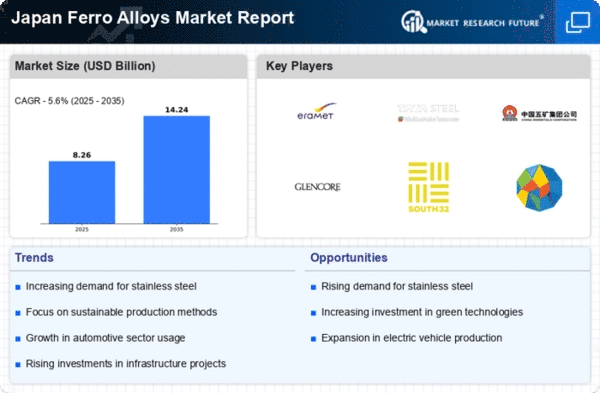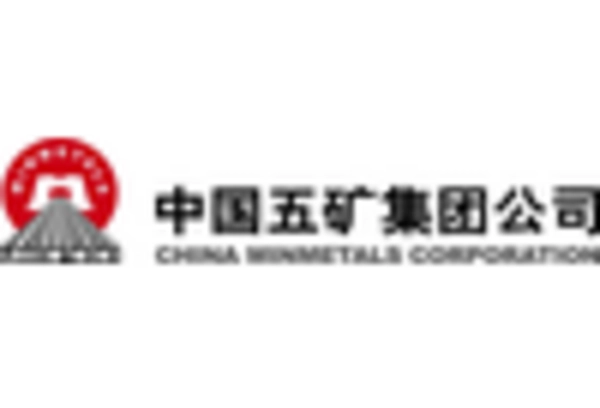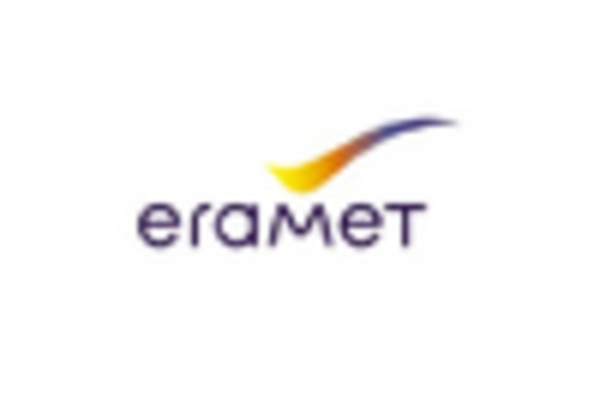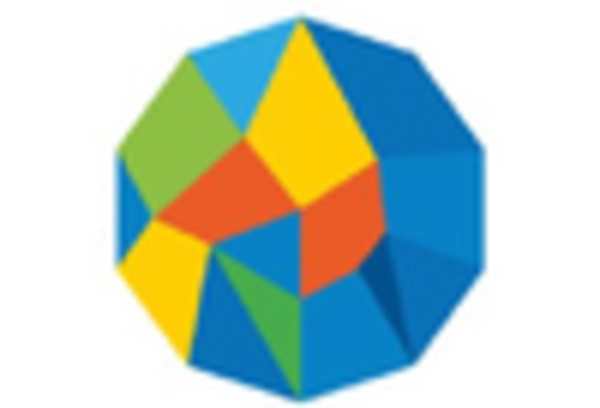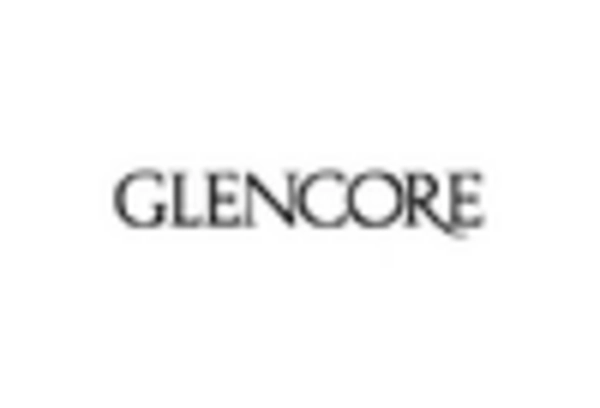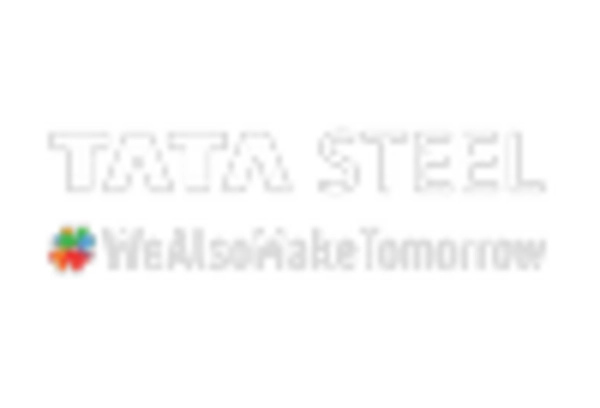The ferro alloys market in Japan is characterized by a competitive landscape that is increasingly shaped by innovation, sustainability, and strategic partnerships. Key players such as Eramet (FR), Tata Steel (IN), and Mitsubishi Corporation (JP) are actively pursuing strategies that enhance their market positioning. For instance, Eramet (FR) has focused on expanding its production capabilities while investing in environmentally friendly technologies, which aligns with the growing demand for sustainable practices in the industry. Tata Steel (IN) has been enhancing its operational efficiency through digital transformation initiatives, thereby improving its supply chain management and reducing costs. Meanwhile, Mitsubishi Corporation (JP) is leveraging its extensive network to forge strategic alliances that facilitate market entry and expansion, particularly in emerging markets.The business tactics employed by these companies reflect a moderately fragmented market structure, where localized manufacturing and supply chain optimization are pivotal. The collective influence of these key players is significant, as they not only drive innovation but also set benchmarks for operational excellence. The competitive dynamics are further complicated by the need for companies to adapt to fluctuating raw material prices and regulatory changes, which necessitates a flexible and responsive approach to market demands.
In August Eramet (FR) announced a strategic partnership with a leading Japanese technology firm to develop advanced ferro alloy production methods that minimize carbon emissions. This collaboration is expected to enhance Eramet's competitive edge by aligning with global sustainability goals and responding to increasing regulatory pressures. The strategic importance of this move lies in its potential to position Eramet as a leader in sustainable production practices, thereby attracting environmentally conscious customers and investors.
In September Tata Steel (IN) unveiled a new digital platform aimed at optimizing its supply chain operations across Asia, including Japan. This initiative is designed to enhance real-time data analytics capabilities, allowing for more agile decision-making processes. The strategic significance of this development is profound, as it not only streamlines operations but also positions Tata Steel to respond swiftly to market fluctuations, thereby maintaining its competitive advantage in a rapidly evolving landscape.
In October Mitsubishi Corporation (JP) expanded its joint venture with a local Japanese firm to enhance its ferro alloys distribution network. This strategic move is indicative of Mitsubishi's commitment to strengthening its market presence and improving customer access to its products. The implications of this expansion are noteworthy, as it allows Mitsubishi to leverage local expertise while enhancing its operational footprint in Japan, thus fostering greater market penetration.
As of November the competitive trends in the ferro alloys market are increasingly defined by digitalization, sustainability, and the integration of artificial intelligence. Strategic alliances are becoming a cornerstone of competitive differentiation, enabling companies to pool resources and share expertise. The shift from price-based competition to a focus on innovation, technology, and supply chain reliability is evident, suggesting that future competitive dynamics will hinge on the ability to adapt and innovate in response to evolving market demands.


